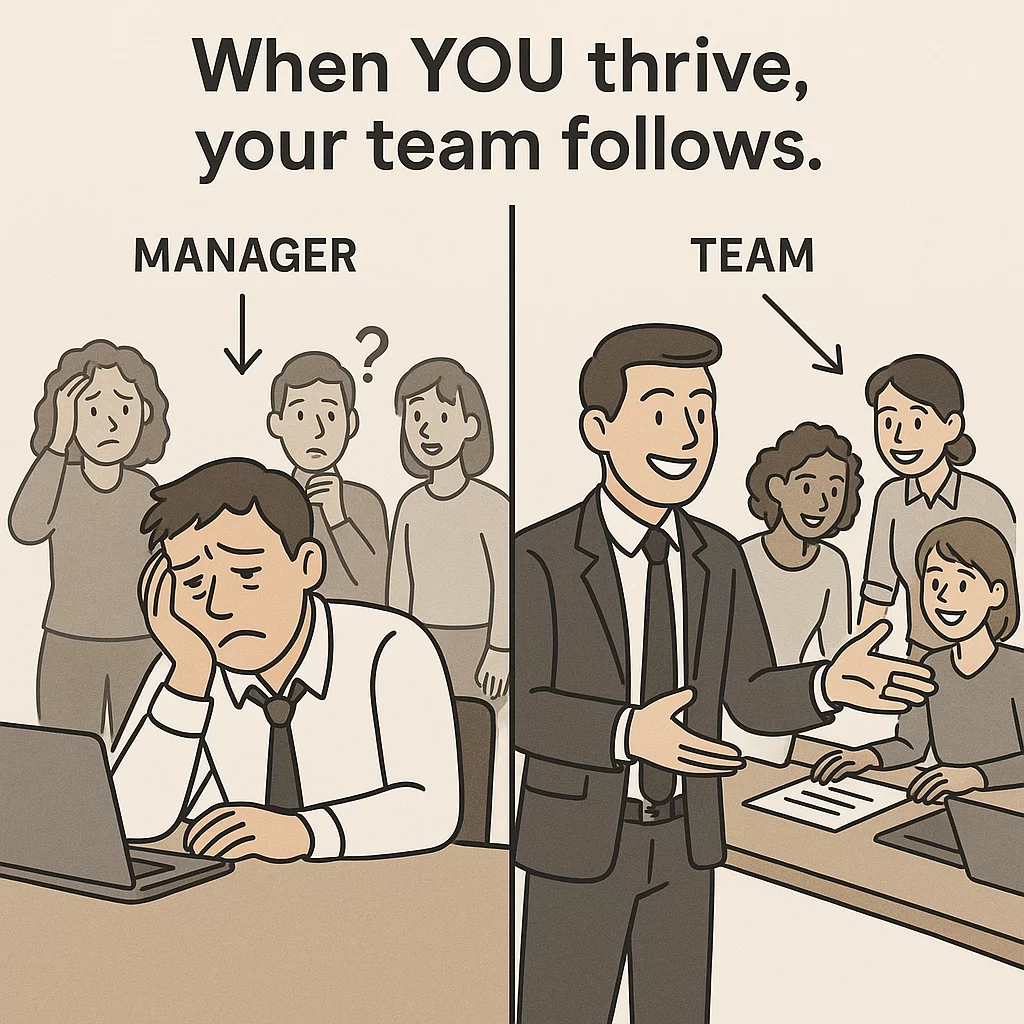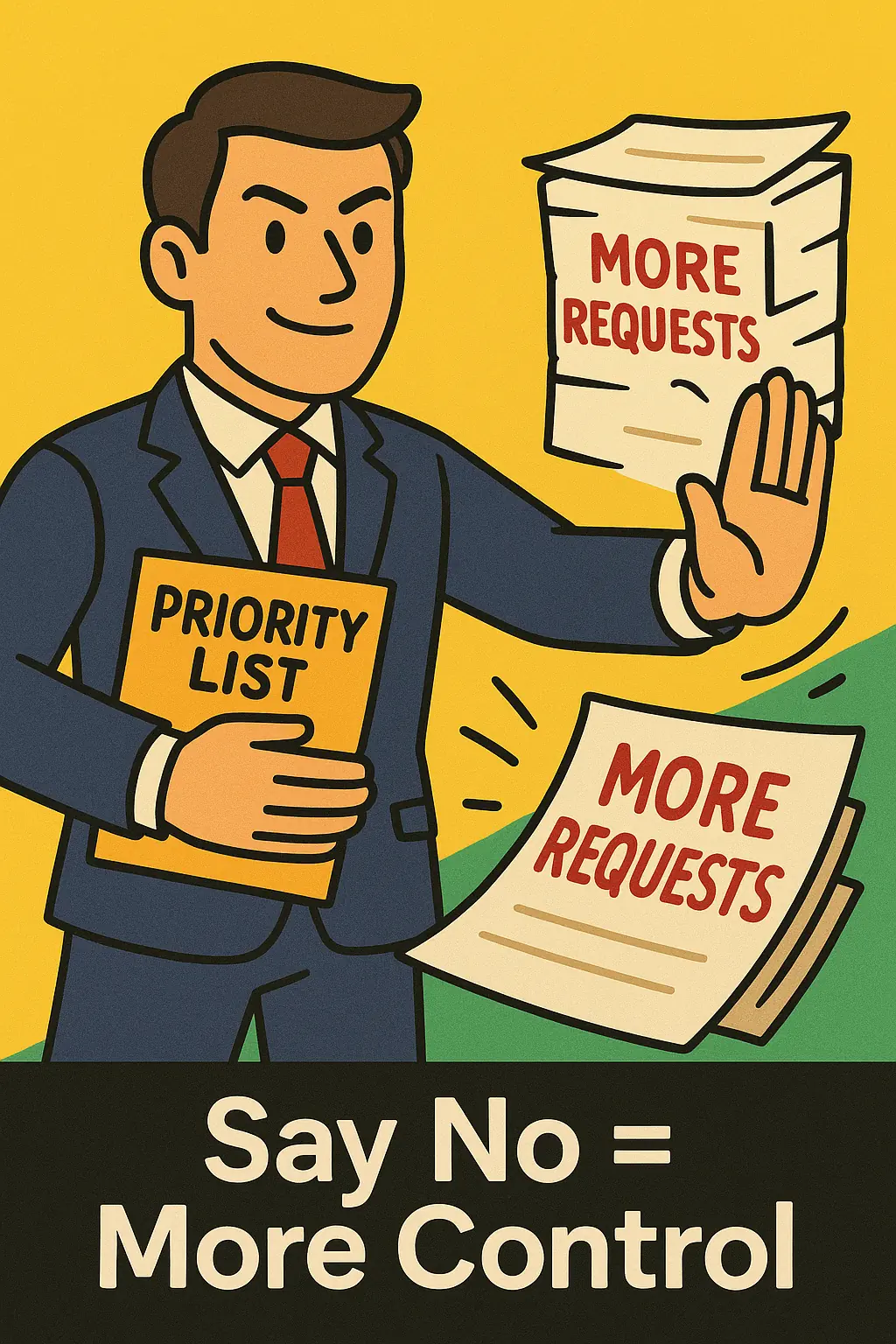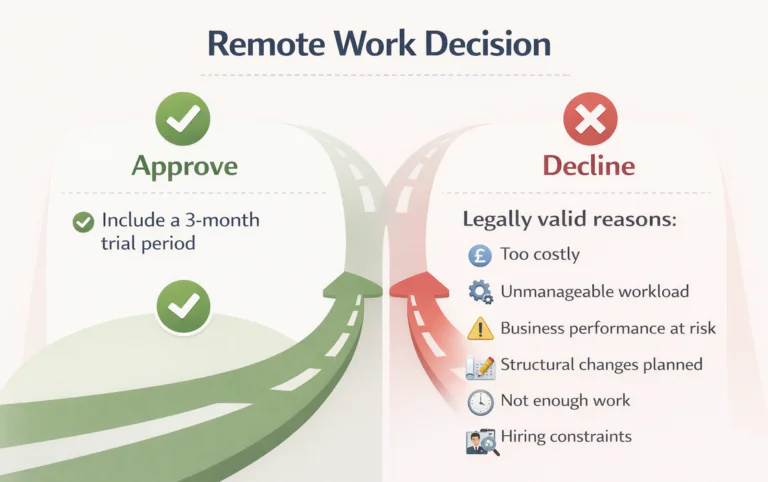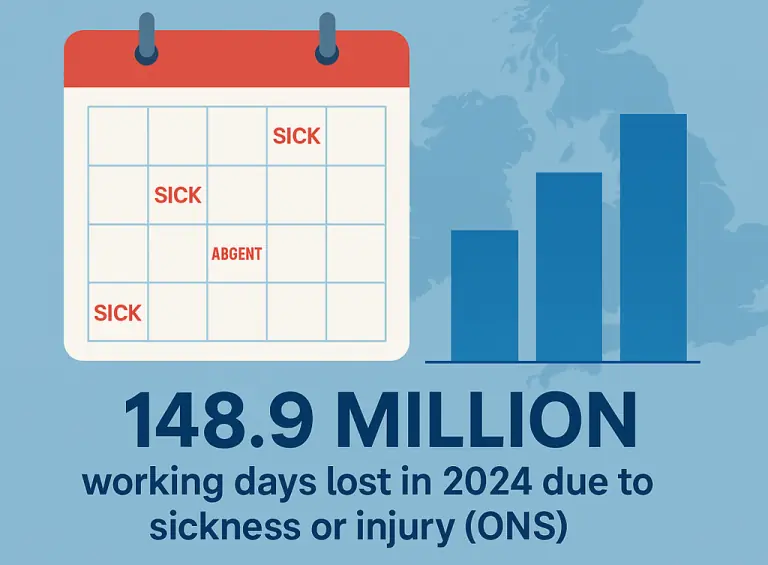
7 Ways To Motivate Yourself As A Manager
Contents
A good manager always makes sure they are understood.
It’s not always easy, and it can be frustrating when, despite your best efforts, your team doesn’t perform as intended.
The issue doesn’t always lie with your team.
Sometimes, your own lack of motivation can be transferred to your team.
The result: everyone’s motivation suffers, as does performance and even quality.
To deal with this, you need to step back and understand how to motivate yourself as a manager.
Assess Your Situation
There are many reasons why you may feel unmotivated. You’re not alone.
According to Forbes, 70% of managers are suffering from motivational issues.
The most common causes are:
- Burnout
- No longer satisfied with the work
- Stress from upper management
- Outside stressors
You need to take stock of your situation and decide what is causing your motivation issues.
Trainer Insight: In our experience running line manager training, we often find that a lack of motivation stems from a mix of personal and organisational factors.
Taking time to pinpoint the exact cause -whether it’s workload, unclear expectations, or external pressures – can be the first step toward re-engaging with your role.
Once you’ve identified the source, small, targeted changes can have a big impact on how motivated and fulfilled you feel at work.
Understanding Your Job
When you’ve done the same job for a long time, it will feel stale.
To regain your motivation, you need to ask yourself what your job actually is.
In most cases, you’re overseeing work.
Stepping back allows you to see what you do on a day-to-day basis.
If you spend more time working than overseeing staff, you’re getting bogged down in the details.
The result will be constantly feeling overwhelmed, and never able to get a handle on what your team is doing: it will destroy your motivation.
Overcoming this issue starts with more delegation.
As a manager, you need to be available to monitor your staff, answer their queries, and fight their corner.
If you don’t have enough time for that, you need to make time by delegating some of your workload.
Simple tracking tools, like Asana and Trello, can help.
Connect With Your Team
As a manager, you have a fine line to walk between being a friend to your employees and simply being a supportive and approachable manager.
Walking the line means getting to know all your employees.
It also means avoiding gossip and favouritism.
Connecting ensures your team respects you and everyone trusts each other.
That encourages creative thinking, higher performance, and solution resolution.
It will reduce the stress you feel and help you feel more motivated.
To connect, make sure you listen when your employees are talking.
You don’t have to respond: you need to understand. Employees who feel valued will contribute more.
That means better results and positive outcomes, which will make you feel motivated.
Building rapport and trust with your team is essential if you want them to feel appreciated and motivated.
This will, in turn, make you feel more appreciated.
Learn To Say No
Managers generally report to someone higher up.
It’s common, especially for new managers, to say yes to all the requests from above.
Sadly, this leads to you being overwhelmed and not having time for your team.
It’s vital you learn to say no, even to your superiors.
This will prevent you from constantly stressing about time.
In doing so, you’ll feel more in control and happier in your role.
It’s not easy, but you can’t say yes to everything!
Check Your Work-Life Balance
Managers trying to do too much end up neglecting their home life.
Whether you’re missing out on time with the kids, your regular exercise schedule, or socialising, you’ll end up feeling frustrated with your job.
By sticking to a work schedule, you can make time for a life outside of work.
It will make you feel more positive and motivated when at work.
You’re also setting a good example to your employees, one that you should encourage them to follow.
It’s not just about motivation.
Getting your work-life balance right means you’ll feel mentally and physically stronger.
That will help you feel more motivated and deal with any issues at work effectively.
Trainer Insight: We once trained a manager who was constantly working late, missing family dinners, and feeling drained before the week had even begun.
Through our sessions, they implemented a strict cut-off time each day, protected their weekends, and encouraged their team to do the same.
Within a month, their energy and motivation noticeably improved – and their team followed suit, creating a healthier, more productive work culture.
It’s important not to share too many details with employees.
You are, after all, the manager.
That doesn’t mean you shouldn’t talk about your day and what you’re dealing with.
Instead of sharing with employees and creating boundary problems, share with a friend or colleague.
Make sure it’s someone you trust and listen to their issues as well.
It’s a great way to get fresh insight and will stop you from dwelling on issues.
Mentally lightening the load means you’ll find it easier to focus on what matters at work.
Ask For Extra Training
Many managers start doing one job and end up somewhere completely different.
It’s often a result of an increase in workload.
The problem is, you will constantly be adapting to cater for the changes.
These can be due to staff shortages, expansion, or various other things.
The result can be, you no longer feel capable of handling the job.
You’ll feel like you’re struggling all the time, and that’s frustrating as well as demotivating.
In this situation, you need to assess what training would help you do the job better and feel more in control.
Then, explain the issue to your manager and request the additional training or software that you feel will make your job easier.
Final Thoughts
It can be hard to lift yourself out of a rut and feel motivated.
However, if you don’t, your team will notice it and their performance will slip.
If you’re ready to learn how to motivate yourself as a manager, try the techniques in this guide.
Make sure you embrace the steps shown!
It will help you and your team feel motivated now and in the future.
- Facebook: https://www.facebook.com/profile.php?id=100066814899655
- X (Twitter): https://twitter.com/AcuityTraining
- LinkedIn: https://www.linkedin.com/company/acuity-training/






